globalwarming
Latest

Federal scientists: US already feeling effects of climate change
The EPA and the administration might not be fans of climate science, but government scientists from 13 federal agencies have concluded that Americans are feeling the effects of climate change right now. According to the draft report obtained by The New York Times (and available on the Internet Archive since January), the average temperature in the country has risen dramatically since the 1980s. Also, it emphasizes how "many lines of evidence demonstrate that human activities, especially emissions of greenhouse (heat-trapping) gases, are primarily responsible for recent observed climate change."
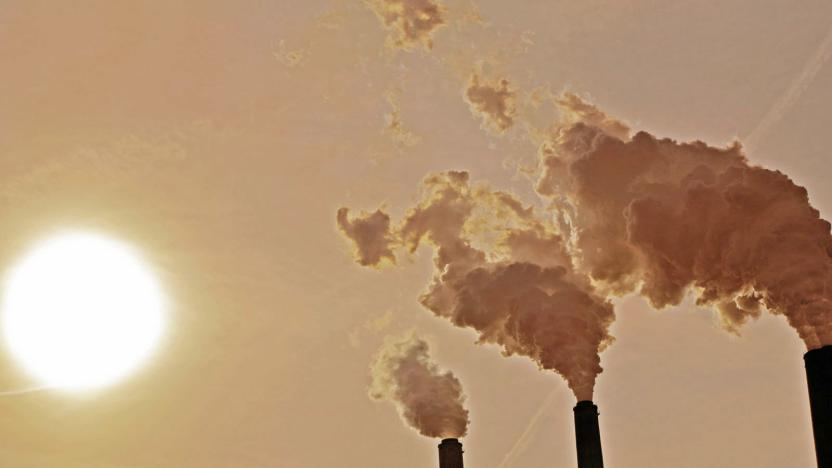
Scientists: Suck CO2 out of atmosphere or face the consequences
We need to start removing carbon dioxide from the atmosphere as soon as possible. If we don't, future generations will have to choose between biblical weather events or spending trillions of dollars trying to avoid them. This is the grim prognosis from an international team of researchers led by former NASA climate science chief, Professor Jim Hansen. Speaking to the Independent about the team's latest research, Hansen said the "shit is hitting the fan" in terms of current climate change progress.

Climate change could prevent food getting around the world
Climate change is bad news for basically every facet of human existence and now it's set to literally hit us in the gut by threatening global food supplies. According to a new report by leading think tank Chatham House, global warming is on course to produce more violent storms and increased flooding, affecting both crop yields and global trade routes.

Research finds deadly heatwaves will occur more often
A study published today in Nature Climate Change predicts that deadly heatwaves will become more frequent in the future. The study found that currently, around 30 percent of the world experiences life-threatening heat for at least 20 days per year. But if greenhouse gas emissions continue to grow, that number could jump up to 74 percent by 2100.

Hawaii defies Trump with law upholding Paris climate accord
Nearly 1,500 US local governments and companies have vowed to uphold the Paris climate deal, but Hawaii is the first state to make its defiance legally binding. Governor David Ige signed Senate Bill 559, committing the state to keep up its end, despite US President Trump opting out of the 195-nation deal. "Hawaii and other Pacific Islands are already experiencing the impact of rising sea levels and natural disasters," said Ige. "That means we need to be first when it comes to creating solutions."
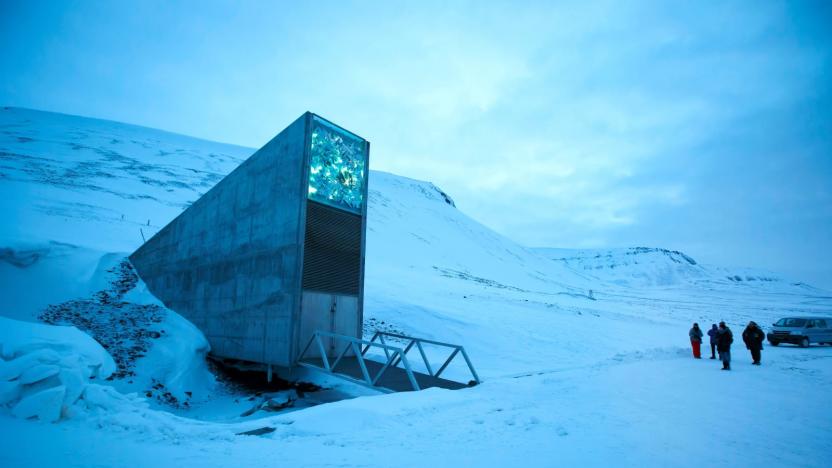
Melted permafrost floods entrance to the doomsday seed vault (updated)
The Svalbard Global Seed Vault was designed to be a repository should the worst happen and a disaster decimate crops around the world. But it was recently breached by floodwater from surrounding permafrost that melted after the hottest year on record. No seeds were ruined, but the security of the location is in question.

Belgian scientists turn polluted air into hydrogen fuel
To save the environment, humanity needs to do two things: reduce harmful gases and produce more energy from "green" energy sources. While plenty of research projects have tried to tackle these independently, few do both at the same time. Scientists from the University of Antwerp and KU Leuven (University of Leuven) in Belgium are developing a device that cleans up the air and generates power at the same time. It relies on a process called 'heterogeneous photocatalysis,' which uses light and a special catalyst (typically a semiconductor) to trigger a chemical reaction.
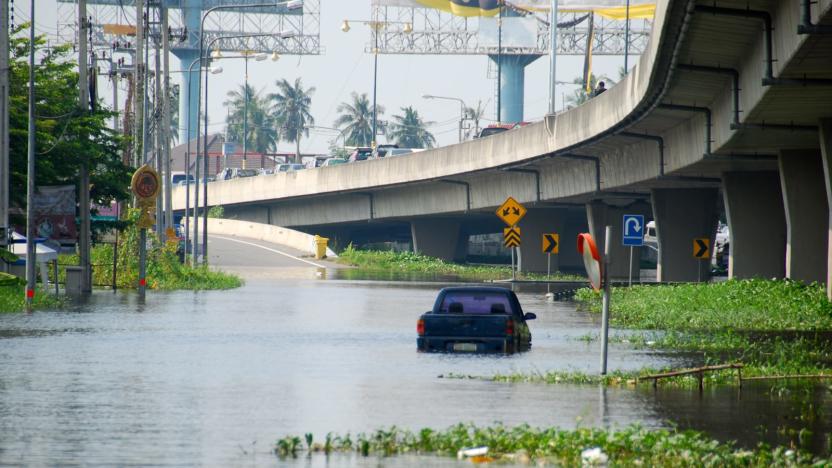
Man-made global warming makes droughts and floods more likely
We already know that man-made global warming is bound to affect our planet, but it's hard to connect human activities to specific events. Now a team of Penn State scientists have published a study that says human-caused climate change makes extreme weather conditions such as droughts, heat waves and floods more likely. With the help of actual observation data and climate models, the researchers studied weather events caused by narrow bands of strong winds called jet streams in the northern hemisphere. While these winds flow eastward, they sometimes get stuck due to certain temperature conditions. When they do, whole regions in Europe, North America and Asia have to endure whatever weather event they bring for extended periods.
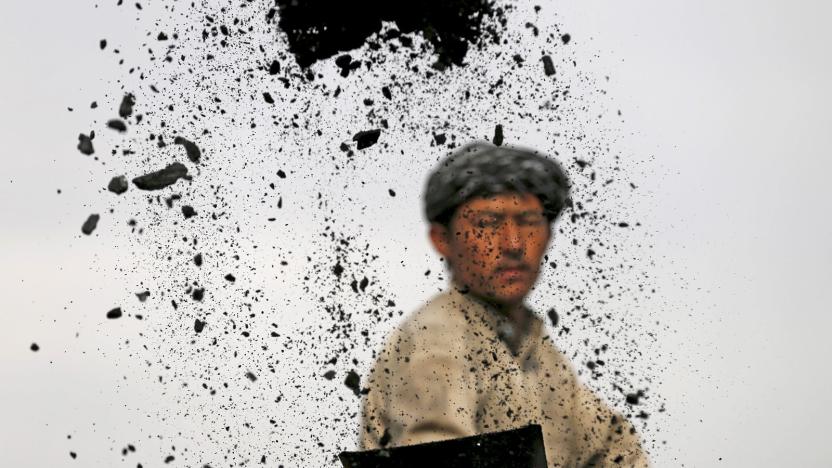
Dear Donald Trump: 'Clean coal' doesn't exist
"Clean coal" is an oxymoron. Even if you took a hunk of coal, doused it in bleach and scrubbed it for six hours with a soapy horsehair brush, it would still cause lung cancer and fill the air with carbon emissions when you burned it. Anyone who says otherwise is lying. However, the phrase "clean coal" is ridiculously tenacious in public discourse. Just this week, President Donald Trump used it: As he signed an executive order rolling back a bevvy of environmental protections laid out under the Clean Power Plan, he turned to the coal miners staged around his desk and promised to "end the war on coal and have clean coal, really clean coal." The president of the United States is lying.
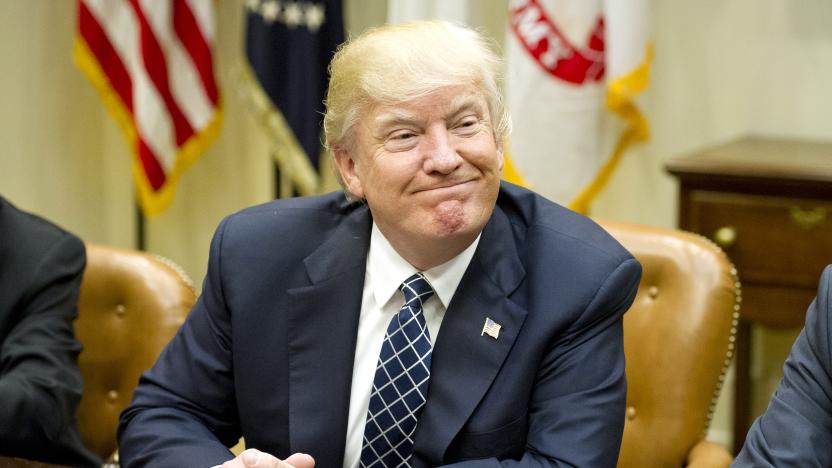
Trump rolls back Obama-era climate change policies
President Donald Trump has signed an executive order that rolls back policies designed to combat climate change implemented by former President Barack Obama. The order is a broad stroke, touching everything from federal policy-making to Energy Star regulations on home appliances. However, today's move specifically targets the Clean Power Plan, allowing the Trump administration to rewrite carbon emission rules for new and existing power plants. It also restarts the federal coal leasing program, enabling energy companies to once again buy the rights to mine on federal lands.
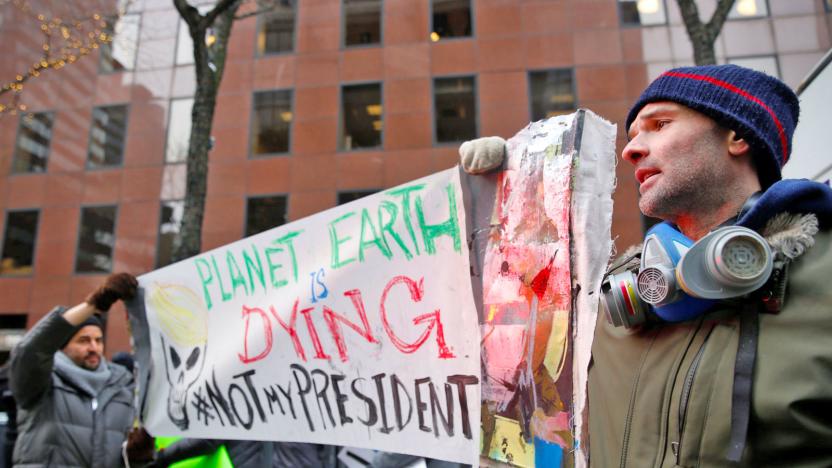
What Trump's budget would mean for NASA and climate change
President Donald Trump's proposed 2018 budget beefs up the Defense Department while removing funds from the Environmental Protection Agency, Department of Energy, NASA and many other government agencies. Congress still has to pass the budget, but if it's approved it will shut down a handful of programs designed to research and combat climate change. Despite overwhelming consensus in the scientific community, multiple members of the Trump administration have argued that climate change is not a man-made occurrence, including new EPA head Scott Pruitt. So, it's not surprising that Trump's proposed budget slashes climate change research programs and funding -- but it is concerning.
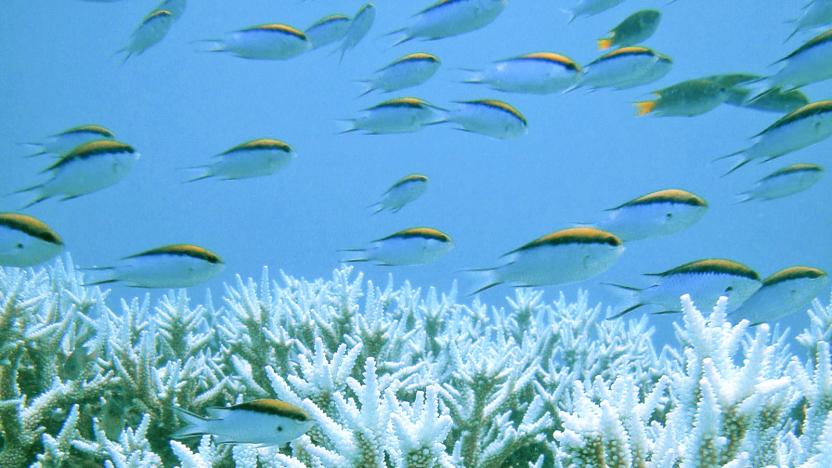
The Great Barrier Reef's fate rests on slowing global warming
There's no question that the Great Barrier Reef and other coral fields are hurting as a result of rising water temperatures. But is there a relatively straightforward way to save them, or do they require more drastic action? Unfortunately, it's not looking good. Researchers have found that typical efforts to fight coral bleaching, such as improving the water quality or tightening fishing controls, haven't helped much at all. Whether an area was immaculate or dirty, it was just as susceptible to damage. The four large-scale bleaching events in the past two decades were the result of increased water heat -- that is, climate.

Republicans poised to roll back environmental protections
With astonishing speed, US Republicans are set to strike down laws or vote on new bills that eliminate environmental protections for the air, streams and national parks. The measures are being proposed so quickly that it has been difficult for environmentalists and Democrats to muster opposition. Much of the Republican strategy depends on a little-used law called the Congressional Review Act, signed into power by Bill Clinton in the '90s to prevent presidents from creating new laws on their way out of office.
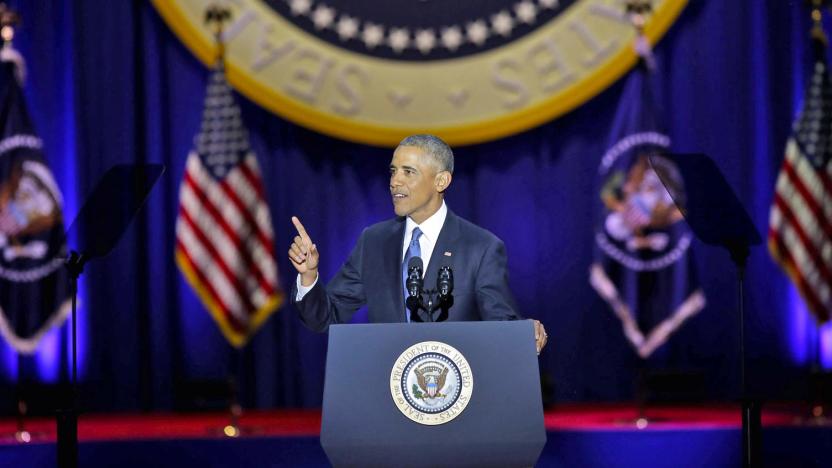
Obama's legacy: The most tech-savvy president
When Barack Obama moved into the White House on January 20th, 2009, the federal government was in the digital dark ages. Even as late as 2011, he was complaining that the White House was 30 years behind. Among other things, Obama was the first president to carry a BlackBerry, and even so, it wasn't until 2016 that the leader of the free world was finally able to trade in his aging RIM device for a modern smartphone. And, as the president was quick to point out in an interview with Jimmy Fallon, the unnamed phone is so locked down, it's like one of those "play phones" you'd give to a 3-year-old. Despite these hurdles, Obama made it one of his priorities to modernize the federal government on everything from telecommunications policy to White House IT. He tackled infrastructure, STEM education, net neutrality and climate change in serious and substantive ways. Of course, the president's efforts weren't always a rousing success, and on issues involving privacy, spying and drone usage, he faces lingering criticism from both ends of the political spectrum. But, love him or hate him, for better or worse, when it comes to science and technology, Barack Obama has had a bigger impact than almost any president in history.
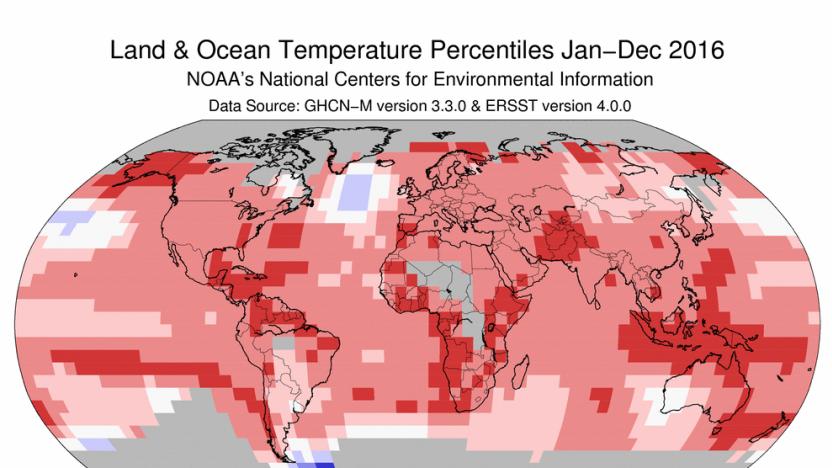
2016 was the hottest year on record (again)
According to a joint report from NASA and the National Oceanic and Atmospheric Administration, 2016 was officially the hottest year on record. If that statistic sounds familiar, it's because 2015 was also the hottest year on record. As was 2014 before that. And those three years of rising temperatures mean the planet is about two degrees Fahrenheit (1.1 degrees Celsius) warmer than it was in the late 19th century.

ICYMI: SpaceX redeems itself with a showstopper rocket launch
try{document.getElementById("aol-cms-player-1").style.display="none";}catch(e){}Today on In Case You Missed It: SpaceX is back in launching mode after the FAA grounded the company following an unfortunate explosion last September. The rocket company successfully launched satellites from its revamped Falcon9, then the motor completed its landing on a SpaceX floating pad.

New DoE guidelines stand for scientific integrity over politics
At a time when scientific facts are frequently disputed for political reasons, the Department of Energy is updating its policy to ensure the "protection of scientific integrity." That quote comes from a Medium post by US Secretary of Energy Ernest Moniz that lays out why we need accurate, unbiased science and three points for the department's policy going forward: Energy Department scientists are able to express their opinions. Energy Department scientists must get the opportunity to review Department statements about their work. Energy Department officials should not and will not ask scientists to tailor their work to particular conclusions.

Obama talks social media and climate change in final address
During his farewell address President Obama tackled many different issues, from the importance of our democratic institutions and the lingering effects of racism. But he also took a few moments to briefly address the economic, environmental and technical challenges facing Americans of all stripes.

The year's biggest loser was the American public
Even if we judge 2016 purely on the musical legends it stole from us, it would be an awful one. The truth is, this year has been rough by any standard. Our social networks, ostensibly designed to connect us, led us to turn on one another. Incidents of harassment and abuse came to define Twitter. Our already bitter and destructive discourse dissolved even further in the midst of a divisive election season. Meanwhile Facebook was flooded with an alarming number of fake news stories. And if that wasn't enough, we were constantly reminded that none of us are safe from the seemingly endless barrage of hackers. Yep, this year the American public lost, big league.
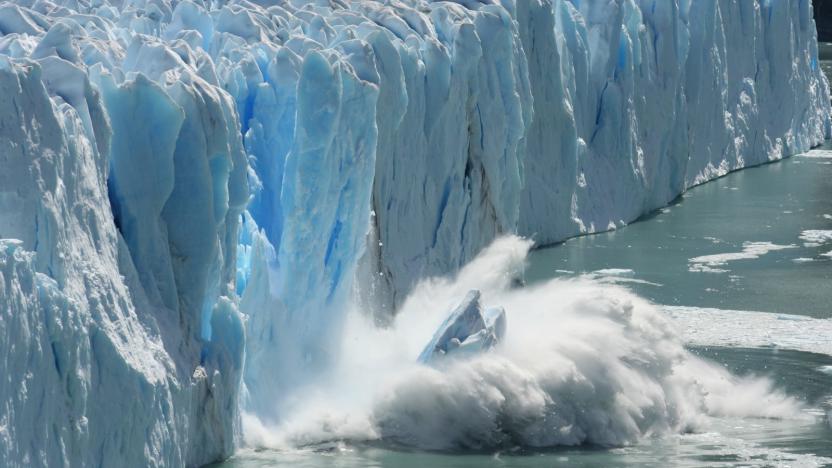
Prepare for even more volatile weather in 2017
Ice isn't just great for keeping your drinks cool at parties, it also helps keep our planet cool by reflecting some of the sun's heat away. But thanks to our glacially slow progress in addressing climate change, there's going to be a lot less ice in the Arctic next year. Scientists are observing record high temperatures in the Arctic circle that's likely to lead to record low levels of ice coverage in 2017. Long story short, we're currently melting the wall that's helped stop the seas boiling for all of these years.











